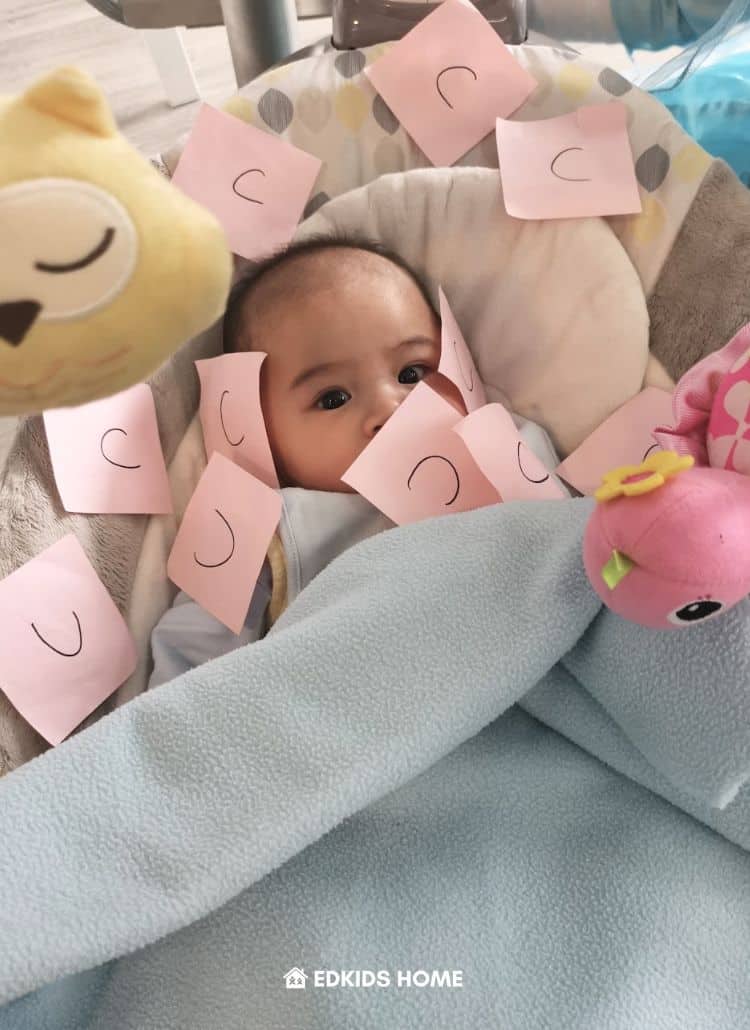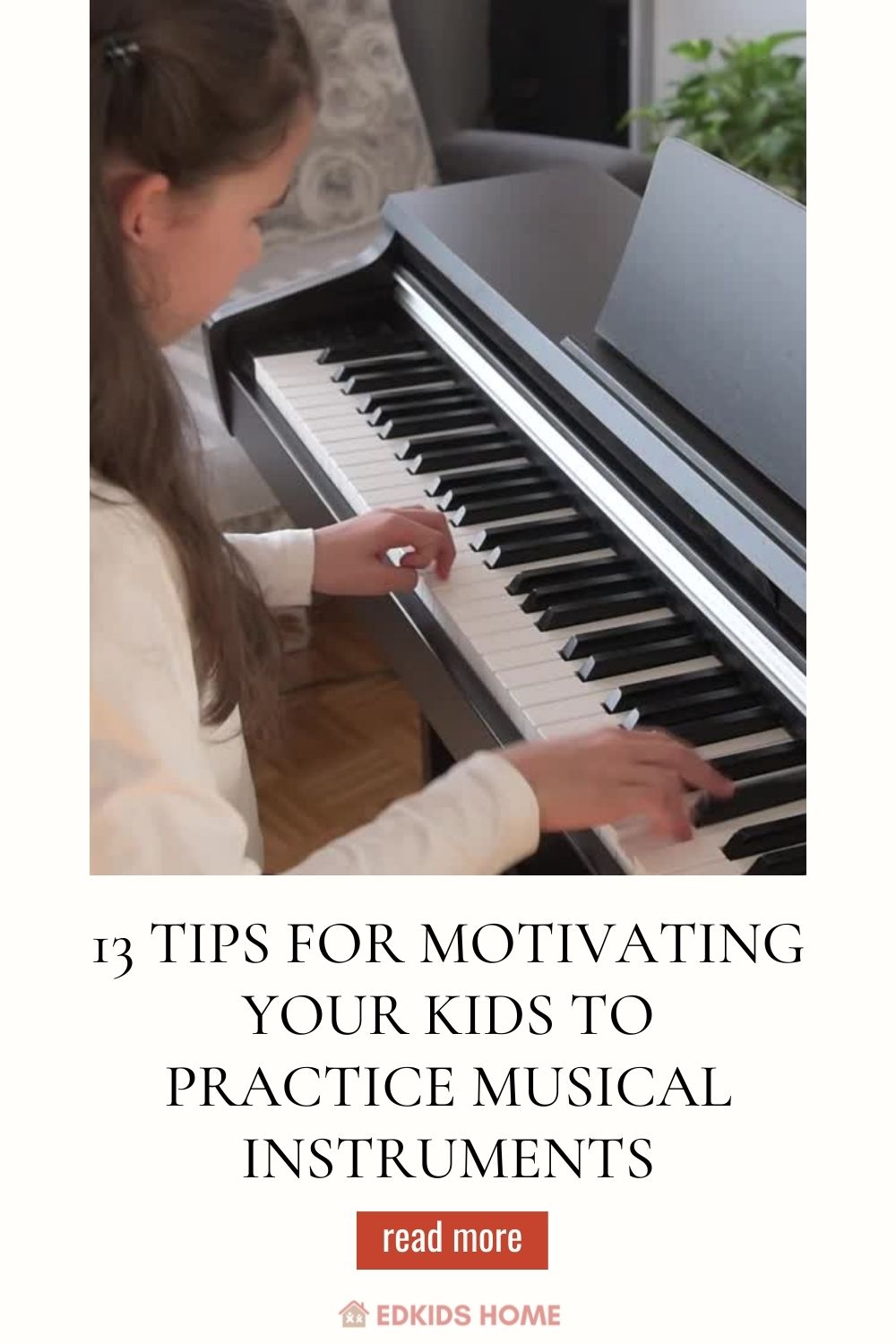
We all know that music is important for our children's development, but it can be tough to get them to practice their instruments regularly. Don't worry, we have 13 tips for how to motivate your child to practice their instrument! Not only will they improve their skills, but they will also have a lot of fun in the process. As a bonus, we are giving away two free printables to help boost motivation! Download our free printables: Free Music Bingo & Music Practice Chart.
Read: 9 Reasons Why Music Is Important for Children and Their Development
No matter which instrument your child plays – guitar, piano, or violin – focused practice sessions are crucial to their musical success.
I started playing piano when I was young and eventually reached level 9 of the RCM (Royal Conservatory of Music). My dedication included practicing piano daily, participating in recitals and competitions, and taking examinations. This has led me to pass on my musical skills and knowledge to my children.
I have always loved teaching my children. Due to the pandemic, I homeschooled my children for two years. Music is one of the subjects that they enjoy while under my guidance. What I love about music education is its incorporation with other subjects, such as language and mathematics.
I have played music and taught it for many years. I will list the tips and tricks I use to motivate my children to practice their instruments.
What is Motivation?
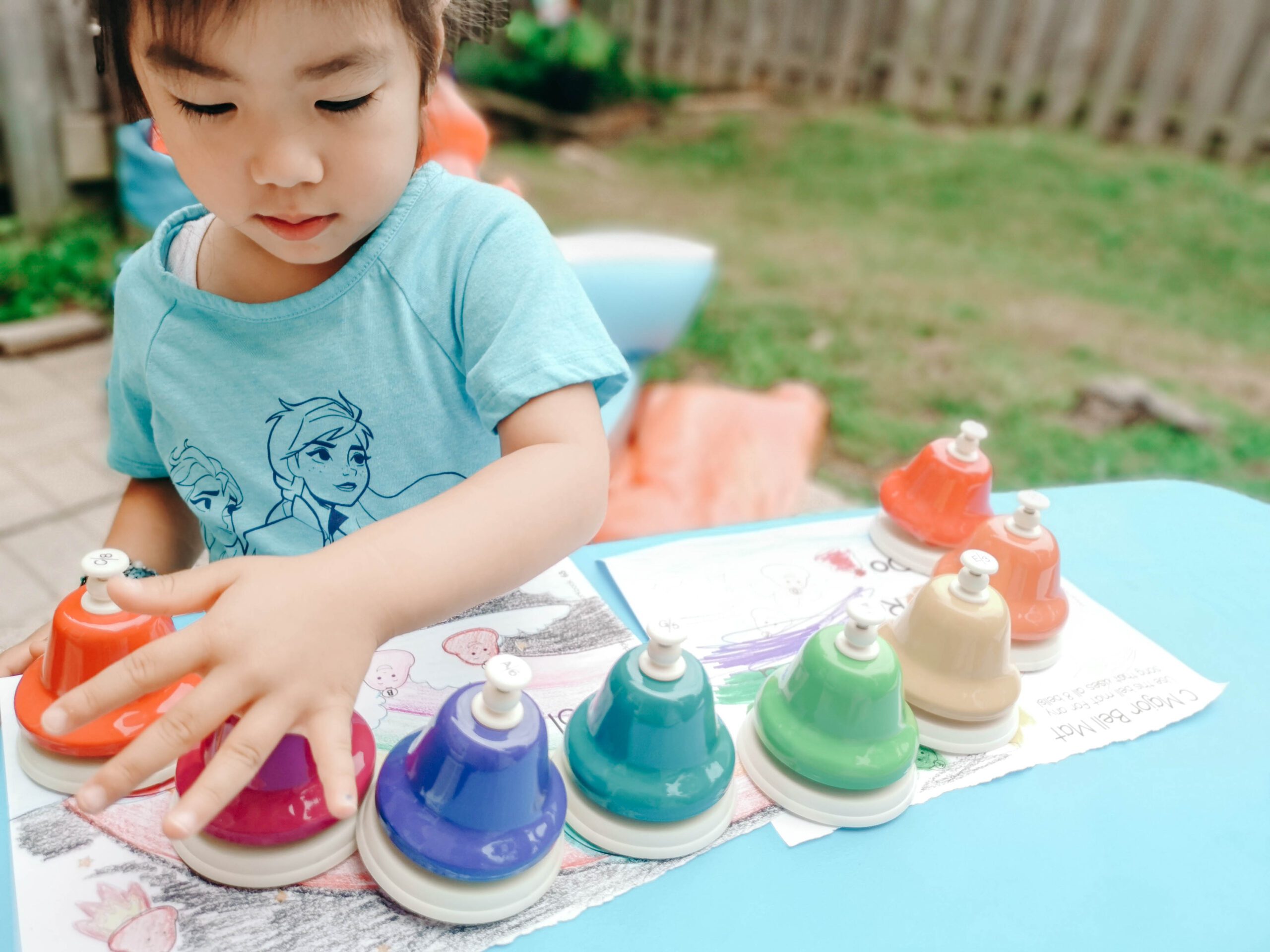
One of the most critical factors determining how successful a musician will be is their motivation to practice. To determine how to motivate your child to practice their instrument, let's find out what motivation means.
Tapping into genius is simple in theory yet hard in practice. It comes from mastering the one activity you love most.
Albert Einstein
Motivation comes from both intrinsic and extrinsic factors. Intrinsic factors come from within, while extrinsic factors come from external sources.
Extrinsic motivation is often based on external rewards, such as winning a competition, receiving applause or attention, or passing an exam. Musicians can also be motivated by things outside of themselves. Musicians enjoy their work when they put a lot of effort into it and are successful.
Intrinsic motivation comes from within a person and is based on personal satisfaction. This type of motivation comes when someone is interested in the task or when they enjoy completing the task. Musicians can be highly motivated by the joy of playing music and making progress on their instruments.
Your children's attitudes also matter – their beliefs, expectations, autonomy, and self-efficacy.
How Long Should My Child Practice Their Instruments?
This question is common among parents in determining how to motivate their children to practice their instruments. I have two different answers for children in various age groups.
For Younger Children (4-7 years old) – 10 to 25 mins, 3x per week
For children ages four to seven, shorter practice sessions work best. With younger children, the focus of their practice should be on quality and not necessarily quantity. Often, what works better than a set time limit is using the repetition method. Instead of asking your child to practice for ten or fifteen minutes, ask them to play their song five times.
Tip: Make tracking repetitions fun. For example, you can use a practice tracking sheet or an app for kids to help them keep track of how many times they have played their song. You can also use rewards and incentives to motivate your child and encourage them to practice more often.
For Older Children (8 – 12 years old) – 30 to 45 mins, 3x – 4x per week
For children between the ages of eight and twelve, longer practice sessions work best. At this age, your child should be able to focus for extended periods, allowing them to get more done during their practice sessions. You can help to make sure your child is focused and use good technique during practice sessions.
Tip: If your child struggles to get motivated or stay focused during practice sessions, try setting small goals or breaking down their tasks into smaller components. This can make the process of practicing feel more manageable and less overwhelming for them. Please encourage your child, praise their hard work, and offer positive feedback when they practice well. Your child can become a talented musician with the right motivation and support!
What if My Child Hates to Practice Their Instrument?
It can be challenging to motivate a child to practice their musical instrument if they struggle. This may be due to a lack of intrinsic motivation or because they need to be more interested in the task itself. It is essential to find out the root of the problem and ask your child why they are struggling to practice. You may need to discuss why it is important to continue practicing and how it will benefit them in the long run.
13 Tips to Get Your Child Motivated to Practice Their Instrument
Tip 1: Expose Your Child to the Delightful Realm of Music and Arouse Their Curiosity.

Showing your child how music can be more than just noise can help them build a deeper appreciation for their instrument. You can bring them to concerts, play music at home, and expose them to new genres outside the practice room. As they discover their taste in music, they will be more likely to enjoy practicing.
Showing your child how music can be more than just noise can help them build a deeper appreciation for their instrument. You can do this by taking them to concerts, playing music at home, and exposing them to new genres outside the practice room. As they discover their taste in music, they will be more likely to enjoy practicing.
To spark my children's interest in music, we watched Youtube videos of pianists, music concerts, and musicians for some time. Here are some of my favorite videos you can share with your children:
- George Meets the Orchestra | An Introduction to the Orchestra for Children
- Beethoven 9 – Chicago Symphony Orchestra – Riccardo Muti
- Tokio Myers: Pianist STUNS the Judges With BRILLIANT Act | Britain’s Got Talent
- Pianist SHOCKS Audience With Moonlight Sonata Dubstep Remix
- Child piano prodigy plays Carnegie Hall
- Emily Bear – Piano Prodigy – Age 6 – edited 1st appearance on Ellen Show
- EPIC Piano Trio Takes Song Requests on Omegle
- Ghostly Piano Trio HAUNTS Omegle Prank!!
Help your child understand the benefits of delayed gratification. Kids are typically impulsive and don't think about long-term outcomes. Show your child examples of what can happen if they practice patience and continue working hard.
Your child doesn't have to idolize a rock star for them to improve musically. Sometimes, it's enough if they look up to a musical friend or family member.
Tip 2: Find an Instrument Your Child Is Interested In.

It is essential to find an instrument your child is interested in, as this will help motivate them to practice. Children usually do better when playing an instrument they are interested in. Forcing them to play one you want them to learn may end up causing more trouble than good. The best guitar lessons out there won't make a difference if your child doesn't enjoy them.
My daughter became interested in the piano at a young age because she often saw someone playing it at either her grandma's or grandaunt's house. Every time she saw somebody play, I would tell her how beautiful it sounded, stressing how lucky they were to be able to play such an instrument.
What triggered her to want to play the piano was exposure to a piano app called Simply Piano. This app is an excellent tool for beginners, as it provides step-by-step instructions and teaches how to read music in an easy and fun way. This is how her piano journey began.
Tip 3: Find the Right Instrument and Tools for Your Child

When purchasing an instrument for your child, getting the right size and fit is vital. Suppose the instrument is too large or too small. Your child may become uninterested because the instrument isn’t suitable for them. In contrast, when the instrument is tailored to them, the likelihood of them practicing and enjoying the instrument will drastically increase.
It's essential to take the time to measure your child and consult with a music instructor or salesperson to find the best instrument for their height, weight, and hand size. This will not only make practicing easier but also help instill a love of music in your child that will last throughout their lifetime.
Just like you wouldn't want your child wearing clothes or shoes that are too tight or loose, you want them to use the right tools when practicing their instrument, too! Ensuring they have all the necessary supplies will help streamline their practice time and make it more productive.
Some essentials include a music stand, a metronome, and quality headphones (if needed). Consider investing in a good-quality instrument bag or case to protect your instrument while not using it.
Tip 4: Help Your Child Find a Teacher They Enjoy Working With
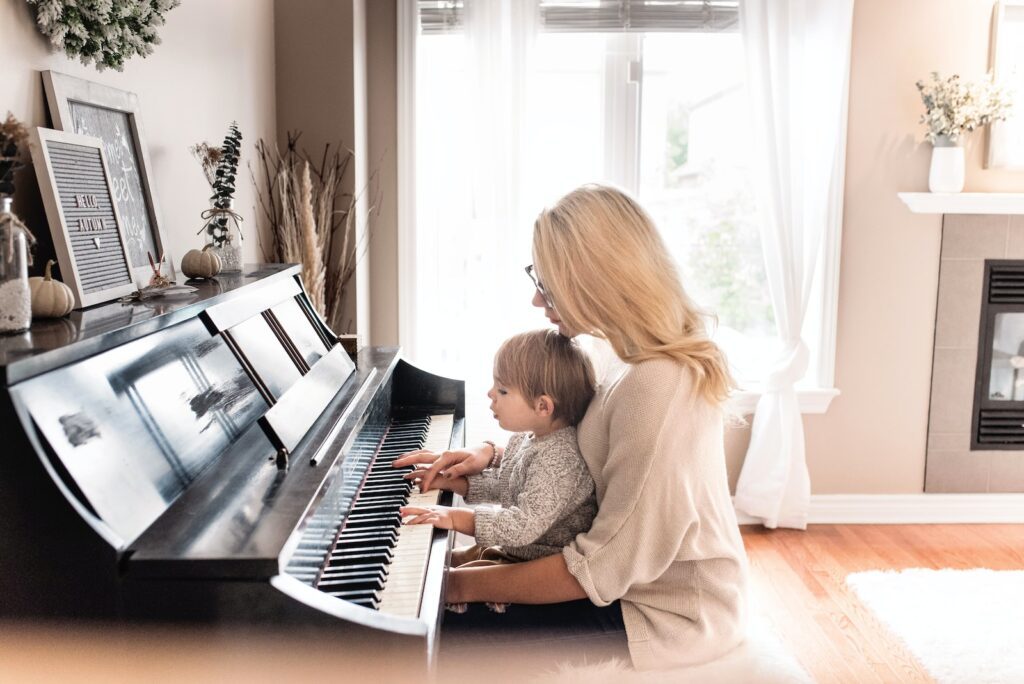
I'm sure there's at least one school subject we all used to love until a teacher who wasn't our favorite somehow destroyed it. Don't let your child's relationship with music suffer the same fate!
Finding the right teacher is vital in helping your child stay motivated to practice and improve their skills. A good music instructor can build a rapport with your child, making lessons engaging and enjoyable.
If you need help finding a great teacher for your child, ask for recommendations from other parents or your child's current music instructor. You can also search for local teachers from online review sites and social media platforms to understand how other students and parents have rated their experience.
Tip 5: Create a Practice Schedule and Stick To It.
Children often have a hard time adjusting to changes in their schedules. If you want to avoid your child waking up early on weekends, talk to them about the best time for instrument practice.
It's crucial to make your children feel like they're in charge of their practice schedule. There's a massive distinction between being forced to do something and agreeing to do something. Giving your child control over when they practice helps them feel as if practicing is something they chose to do instead of you enforcing them. Even so, gently encourage them to stick with the plan from time to time.
It can also be helpful to create a schedule for yourself to provide the necessary support and encouragement your child needs to stick with their practice routine.
You can also help your child track their progress by using a practice chart, noting how many days they have practiced and how much time they spent practicing each day. This will help keep your child accountable and motivated to play their instruments.
I have created a free music practice chart just for you! It is available in English, French, and Chinese (Traditional, Simplified, Zhuyin, and Pinyin)
Download: Free Music Practice Chart
Tip 6: Help Your Child Set Realistic Goals.
How to motivate your child to practice their instrument? Setting goals! Please encourage them to set realistic goals that they can work towards achieving. For example: Learning how to play a new song or improving their speed and accuracy on the instrument.
Tip 7: Provide Positive Reinforcement and Praise Your Child's Achievements.

All levels of progress should be applauded in equal measure. Encouragement is a key to success and happiness for beginner musicians, as it reinforces positivity.
“Keep up the good work! I can tell that you've been practicing. You're getting good at those chords.”
Remember to praise your child's efforts and not just their talent when you compliment your child. Constantly praising how “talented” they are can have the opposite effect, making them feel discouraged and unmotivated when things get complicated.
Instead, focus on how hard your child is practicing their instrument and how much progress they have made. This will help keep them motivated to continue practicing and achieve their goals.
You can also consider providing your child with rewards or incentives for completing specific practice goals, such as being able to choose a new song to learn.
To conclude, it is essential to remember that every child is unique and will progress in their musical journey at their own pace.
Tip 8: Get Involved in Practicing Instrument With Your Child.
As children who read aloud with their parents have better reading comprehension and cognition, those who make music with their parents become better musicians.
Though some musical abilities may be genetic, children also learn from their parents that music is valuable. You can be a world-renowned musician to get involved in tune with your children.
Sit with your child while they practice regularly. This shows that you're interested in their learning and to help catch any confusion. Also, ask them to play or demonstrate what they've learned recently; this gives you quality time together and allows you to assess their understanding.
While my 6-year-old daughter plays the piano, I occasionally sit with her during practices. Doing so allows me to see her progress, provide guidance when needed, and let her play independently to build autonomy.
To help my daughter when she was stuck, I would have her play the treble clef notes while I played the bass clef ones. This made her more likely to want to practice again so that she could get better. At the end of her practices, she usually asked me if I could play a song she had heard. After playing it for her and seeing how amazed and inspired she looked, I realized just how much impact music could have on someone.
Tip 9: Your Child Shouldn't Feel Practicing Instrument is Like a Chore.

You want your child to practice, but it seems a lot more like an activity they “have to do” as opposed to one they “get to do.” They're less likely to engage in the activity and might even start dreading practice if this becomes their mindset. To try and change this perspective, you could offer another fun activity after they finish practicing. For example, let's say they wanted to play on iPad; In that case, screen time could come after they practiced. If at any point they choose not to practice, though, that's okay–they won't get screen time afterward. This is another tip on how to motivate your child to practice their instrument.
Tip 10: Let Your Child Choose Their Music to Play

Music is an art form. While it takes dedication and consistent practice to play music well, music is about creation at its core. By allowing your child the freedom to explore and express themselves musically, you're vital in helping them access their musical potential and find great joy.
If you need help convincing your child to play their instrument, try letting them pick out sheet music from their favorite artist or a popular song. As children age, they develop their own musical tastes, so this extra motivation may be just what they need to practice. If you can't find anything suitable at home, take a trip to your local music shop and browse the selection there with your child until they find a piece they like.
Tip 11: Help Your Child to Find an Instrument Buddy or a Musical Community.
One way to keep your children motivated is to find someone their age who plays the same instrument and is willing to practice often. This encouragement from a friend will support their goals and help boost their confidence.
Consider joining a music group, such as a band or orchestra. This will allow your child to have fun playing music and make new friends who share their love for music.
This could be anything from a local youth orchestra or choir to attending concerts and workshops with other musicians.
Being a part of a musical community gives you more than just the motivation to keep going. You also develop teamwork and collaboration skills, learn to give and receive feedback constructively and work towards a shared goal.
Tip 12: Give Your Child Opportunities to Perform in Front of Others
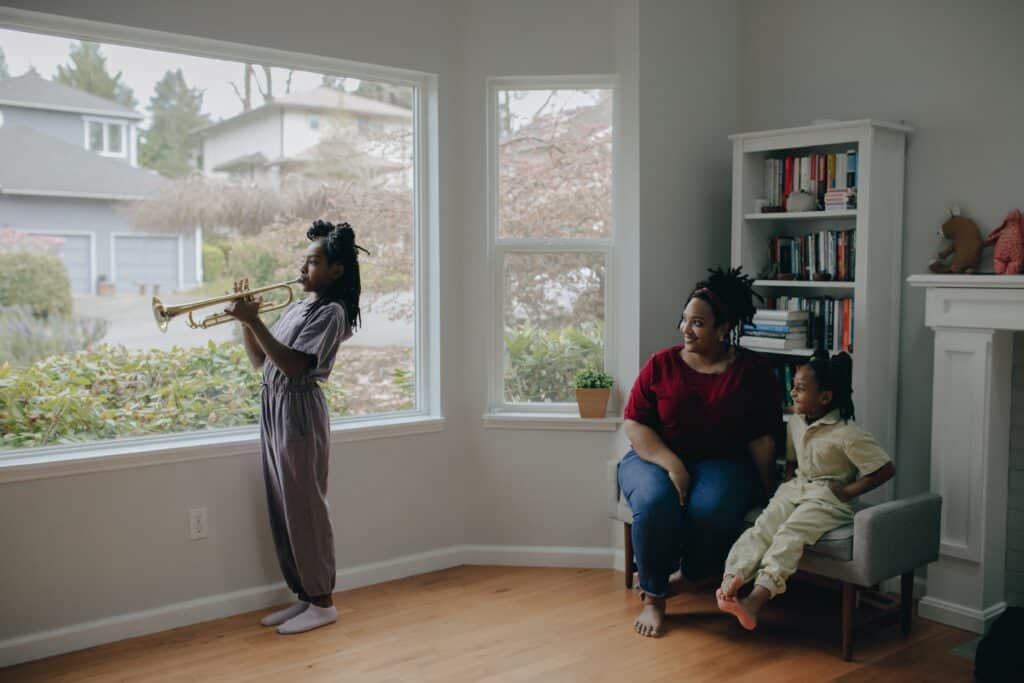
Kids get a kick out of performing for an audience, whether they've just started taking music lessons or not! Having an end goal in mind can make it much easier to encourage your child to practice their musical instrument regularly.
If your child doesn't have any school or extracurricular performances coming up, put on a show for friends and family at the next holiday event. If they're shy, start with a small, like a performance for mom and dad to help them reach a bigger audience.
It is funny how memory works sometimes. I remember that my parents always used to ask me to perform for their friends when they came over, and I would be pleased to do it. Now I find myself starting to do the same thing with my daughter, and she loves the attention!
Tip 13: Make Sure Your Child Enjoys Practicing Their Instrument.
I saved this tip as the last and the most important one on how to motivate your child to practice their instrument. It is to enjoy practicing!
If most children don't find something somewhat fun, they're likely to grow bored of it quickly. The practice could become tedious, so try gamifying it with different tasks and obstacles.
One way to make practice more enjoyable is by incorporating their favorite music into their routine. This will help them connect with the instrument deeper and get excited about playing their chosen instrument.
We love using the Simply Piano app because it has many of our favorite music, including top hits and Disney jams. We also play that music in the car or home to motivate my daughter. By the time she gets to play the tunes on the app, I can see her emotions resurface, and she sings along with each song while playing.
Another way to ensure the practice is enjoyable is by incorporating games and activities into their routine.
I have created a free music bingo printable for making practicing instruments fun. It contains many creative ways of practicing musical instruments. You can download the printable here.
Free Printables: How to Motivate Child to Practice Instrument
Creative ideas and exercises are designed to make practicing more fun and enjoyable. Whether your child is a beginner or an experienced musician, staying motivated and excited about practice can be challenging. But with the right tools and resources, it is possible to keep your child engaged, motivated, and inspired. So why not start today by downloading our free printables?
Music Bingo Printable
This printable is a fun and creative way to help motivate your child to practice their musical instrument. It includes tasks, obstacles, and challenges for them to complete throughout their practice, such as playing a song backward or slowly.
Download: Music Bingo Printable
Music Practice Chart
In addition to the printable resources, you can use a simple practice logging sheet to track how long and often your child practices. This will not only help you see how they are progressing, but it can also serve as an additional motivator for your child if they want to earn rewards for their hard work.
Download: Free Music Practice Chart
FAQ: How to Motivate Your Child to Practice Instrument
Should I force my child to play an instrument?
The short answer is no – you should never force your child to play an instrument. Many children develop negative feelings about music, their instruments, and practice when forced to do something they don't enjoy.
it is essential to determine how motivated your child is to learn and play music on their instrument. Suppose your child is excited about learning how to play and practices regularly on their own. In that case, forcing them to practice will likely be unnecessary.
However, suppose your child struggles with motivation and seems uninterested in playing the instrument. In that case, consider other strategies for motivating them and help them feel more engaged and excited about their music practice.
Should parents sit in on music lessons?
This depends on the age and individual needs of your child. Parents may want to sit in on their music lessons for younger children to help them stay focused, engaged, and motivated. However, for older children or teens who are more independent and mature, it may be better to allow them some space and support them from a distance. Ultimately, your involvement in your child's music lessons should be decided on a case-by-case basis and will likely depend on their specific needs and personality.
What are the roles of parents in musical education?
Parents can play several vital roles in musical education and the development of their children. These include providing support and motivation, being a positive role model, encouraging practice at home, and attending lessons or recitals with your child.
You can also help your child develop good study habits and healthy attitudes towards music by ensuring they have access to quality resources and instruments. You can also provide positive feedback and encouragement and foster a love of music in your home.
Music Printables for Kids
- Free Music Beat Game Resources – Wise Owl Factory
- Free Sheet Music & Resources – Let's Play Music
- Free Printable Practice Charts for Kids – Crafting Chicks
- Free Printable Music Staff Paper – Paper Trail Design
Conclusion: How to Motivate Child to Practice Instrument
How to motivate your child to practice their instrument? It is to encourage them to practice more often, and we have provided two freebies for you. The first is music bingo, which can be used as a fun game to help keep your child engaged during their practice sessions. The second is our music practice chart, which helps your child track how many days they have practiced the piano.
We have outlined 13 tips on how to motivate your child to practice their instrument. These tips include breaking down tasks into smaller components, setting small goals, and providing positive feedback when they practice well.
Lastly, we want to remind parents that forcing a child to play an instrument usually does more harm than good. If your child is not interested or motivated in learning how to play music on their own, try using one of our freebies or following the tips mentioned in this blog post until they become more excited about playing music!
Remember to download the free printables to help motivate your child to practice their instrument!
Download: Free Music Bingo & Music Practice Chart
